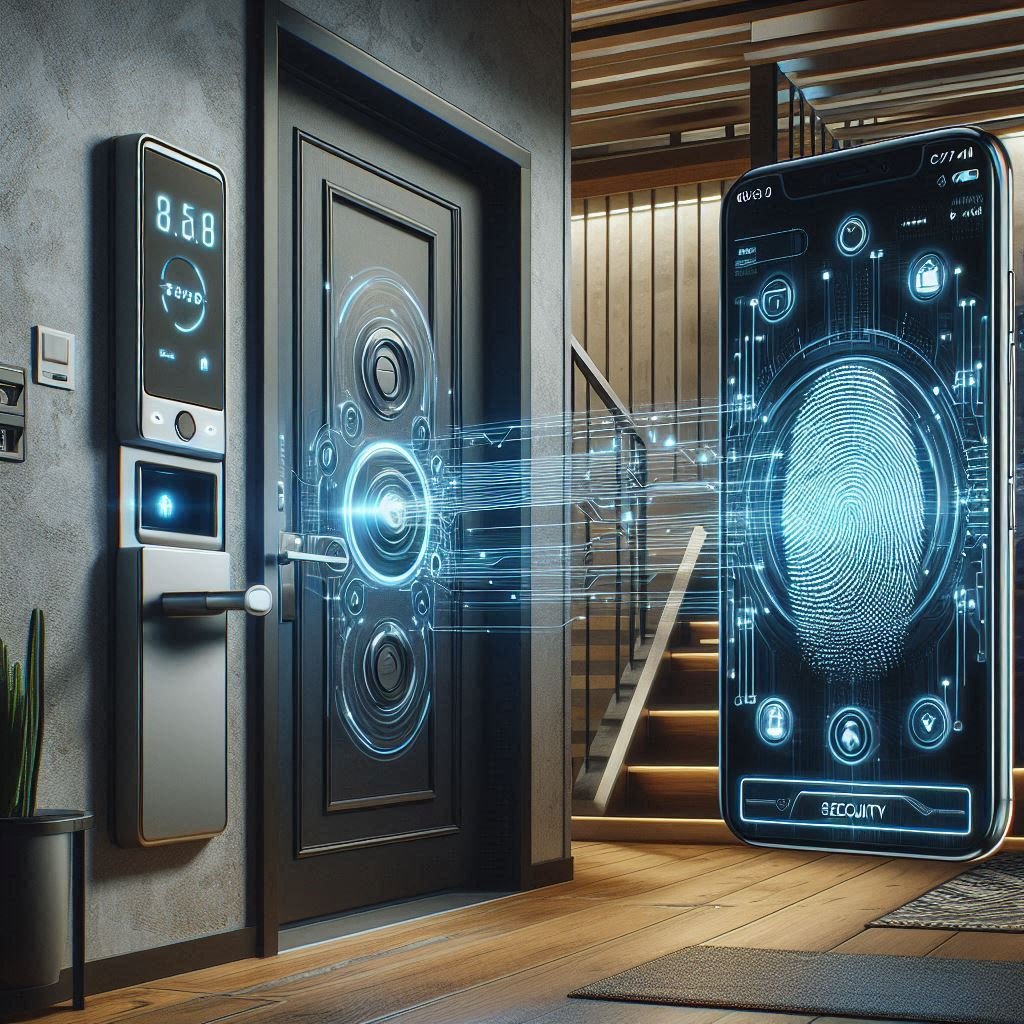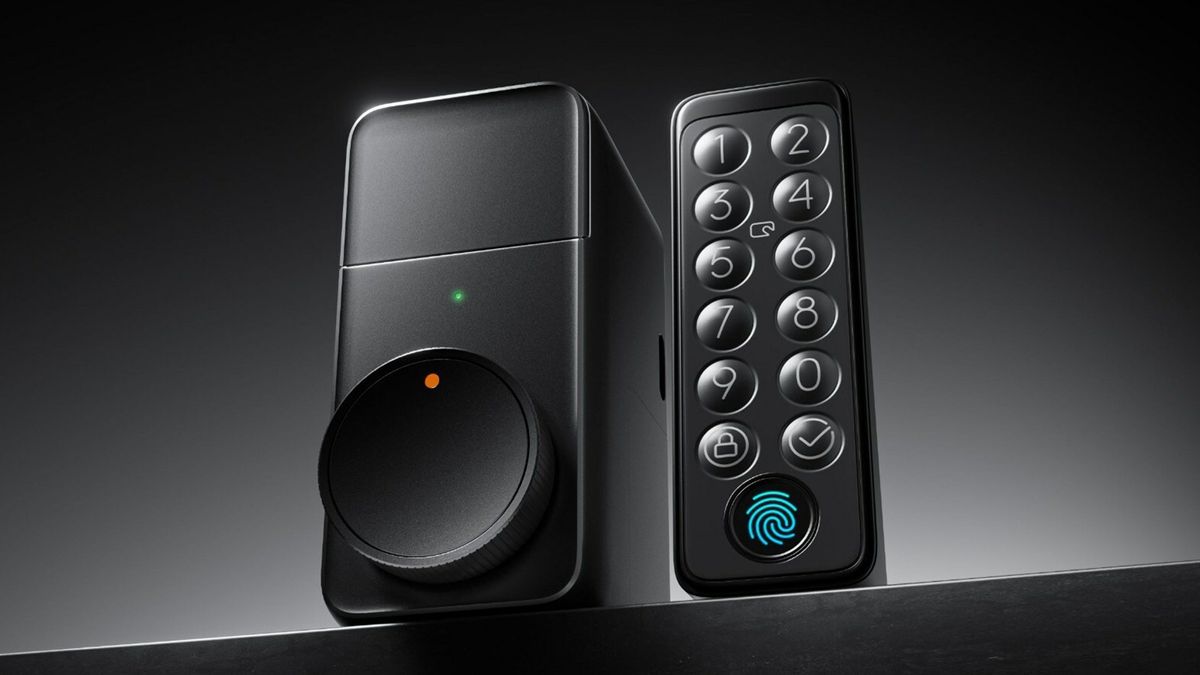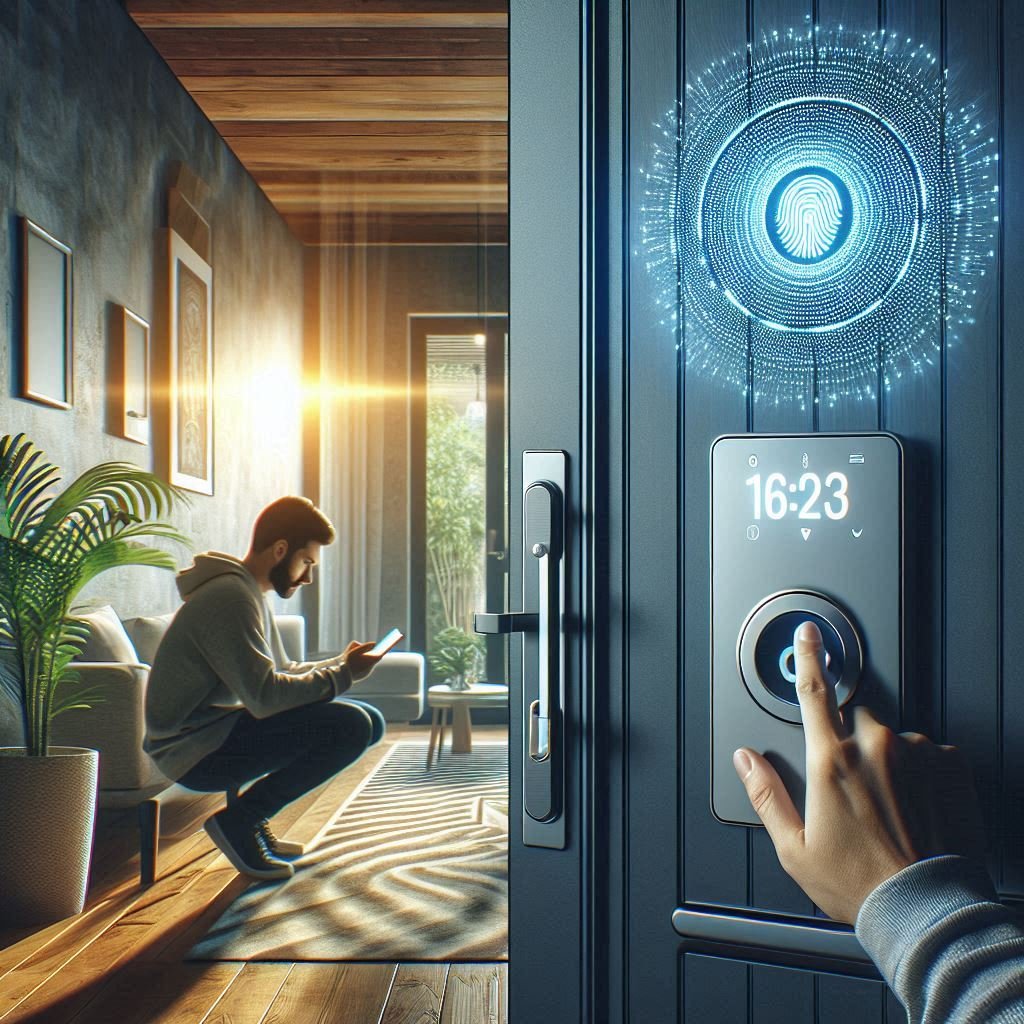Smart Door Lock Vs. Digital Door Lock: Smart door locks operate with Wi-Fi or Bluetooth, while digital locks require physical interaction. Smart locks offer remote access and monitoring capabilities through technology, whereas digital locks rely on traditional methods of entry.
Table of Contents
Understanding the distinctions between these two types of locks is crucial for choosing the best security solution for your needs. Smart locks provide convenience and advanced features, while digital locks offer affordability and simplicity. When deciding between smart door locks and digital locks, consider factors such as connectivity, security, and ease of use to make an informed decision.
By exploring the unique characteristics of each type of lock, you can determine which option aligns best with your preferences and requirements.
Key Distinctions
When it comes to securing your home or business, the choice between a smart door lock and a digital door lock can be crucial. Understanding the key distinctions between these two types of locks can help you make an informed decision that suits your specific needs. Let’s delve into the key differences between smart door locks and digital door locks.
Unlocking Mechanisms: Wi-fi Vs. Physical Interaction
Smart door locks are designed to provide convenient access through Wi-Fi or Bluetooth technology. Users can unlock these locks remotely using a smartphone or other smart devices, eliminating the need for physical interaction with a key. On the other hand, digital door locks typically require physical interaction, such as entering a PIN code on a keypad or using a key card, to unlock the door.
Connectivity: Smart Locks Vs. Electronic Locks
Smart locks are equipped with advanced connectivity features, allowing users to control and monitor access remotely via a mobile app or web interface. These locks offer seamless integration with smart home systems and provide real-time access management. In contrast, electronic locks are not typically connected to the internet and do not offer remote access or monitoring capabilities.

Credit: www.sourcesecurity.com
Differences In Functionality
The difference in functionality between smart door locks and digital door locks lies in their operation. Smart door locks can be unlocked using Wi-Fi or Bluetooth technology, offering remote access and monitoring through a mobile app or web interface. In contrast, digital door locks require physical interaction or proximity to the key, often involving a keypad to enter a PIN code for unlocking.
Smart door locks and digital door locks are both innovative solutions to the traditional key lock system. However, they differ in functionality. In this section, we will explore the differences in functionality between smart door locks and digital door locks.
Keyless Entry And Interaction
One of the primary differences between smart door locks and digital door locks is their keyless entry and interaction. Smart door locks use Wi-Fi or Bluetooth technology to unlock the door, while digital door locks require physical interaction or proximity to the key. With smart door locks, you can unlock the door using your smartphone, voice command, or a key fob. On the other hand, digital door locks require you to enter a PIN code or use a key card to unlock the door.
Remote Access And Monitoring
Another significant difference between smart door locks and digital door locks is remote access and monitoring. Smart door locks are connected to the internet, allowing remote control and monitoring via a mobile app or web interface. You can lock or unlock the door from anywhere, check the status of the lock, and receive notifications when someone enters or exits your home. In contrast, digital door locks do not provide remote access or monitoring capabilities and are typically not connected to the internet.
In conclusion, smart door locks and digital door locks have different functionalities. Smart door locks offer keyless entry and interaction, as well as remote access and monitoring, while digital door locks require physical interaction and do not provide remote access or monitoring capabilities. When choosing between the two, it ultimately depends on your needs, budget, and personal preferences.

Read also: Are Smart Locks Worth It? Pros, Cons, And Honest Insights
Disadvantages
When it comes to smart door locks and digital door locks, there are certain disadvantages to consider before making a decision. Understanding these drawbacks is crucial in determining which type of lock best suits your needs.
Internet Dependency
Smart door locks often rely on an internet connection to function, which can be a disadvantage in areas with unreliable or limited connectivity. This dependency on the internet may pose security risks and potential vulnerabilities to cyber threats.
Battery Replacement
One of the drawbacks of smart door locks is the need for regular battery replacement. If the batteries run out without warning, it can lead to inconvenience and potential security issues, especially if the lock fails to operate during an emergency.
Cost Comparison
Compared to traditional digital door locks, smart door locks generally come with a higher price tag. The initial investment and ongoing maintenance costs of smart locks may deter budget-conscious consumers, especially when considering the added expenses of internet connectivity and battery replacements.
Comparing Traditional Vs. Advanced Locks
Smart door locks offer remote access via Wi-Fi or Bluetooth, while digital locks require physical interaction. Smart locks provide convenience and security enhancements, whereas digital locks are more traditional and cost-effective. Choose based on your preference for technology and convenience.
Convenience
Smart door locks offer the convenience of remote access and control through Wi-Fi or Bluetooth technology. Users can lock or unlock their doors from anywhere using a mobile app or web interface. On the other hand, digital door locks typically require physical interaction or proximity to the key for operation, limiting the convenience factor.
Reliability
Traditional key locks may be reliable, but smart door locks provide added reliability with features like automatic locking, activity logs, and tamper alerts. This advanced technology enhances the overall security and reliability of the lock system, offering peace of mind to the users.
Security Features
Smart door locks come equipped with advanced security features such as biometric authentication, PIN code access, and real-time notifications. These features enhance the overall security of the property. Digital door locks, while providing basic security, may lack the advanced features offered by smart locks, making them comparatively less secure.
When choosing between traditional and advanced locks, factors such as budget, specific needs, and personal preferences play a crucial role. While traditional key locks are generally cheaper, smart locks offer added convenience, reliability, and security features, making them a preferred choice for many users.
Affordability And Pricing
Affordability and pricing play a crucial role in the comparison between smart door locks and digital door locks. Smart door locks generally come with higher price tags due to their advanced technology and features, while digital door locks offer a more budget-friendly option without compromising on security.
Smart Door Lock Vs. Digital Door Lock
Digital and smart locks are both convenient and secure locking options for modern homes and offices. However, they differ in functionality and features. Digital locks are operated using a PIN code or a key card, while smart locks use Wi-Fi or Bluetooth technology to allow remote access and control.
High-end Models And Cost Considerations
When it comes to affordability and pricing, digital locks are generally more affordable than smart locks. High-end digital locks can cost around $100 to $200, while smart locks can cost around $200 to $400 or more, depending on the features and brand.
While digital locks offer basic security features and easy operation, smart locks offer advanced features such as remote access, monitoring, and integration with smart home systems. However, these added features come with a higher price tag.
Therefore, when choosing between a digital lock and a smart lock, it’s important to consider your budget, security needs, and convenience preferences. If you’re on a budget and looking for a basic locking option, a digital lock could be the best choice. However, if you want advanced features and added convenience, a smart lock might be worth the investment.
In conclusion, the choice between a digital lock and a smart lock depends on your personal preferences and needs. Both options offer benefits and drawbacks, and it’s important to weigh the cost and features before making a decision.
Power Source Requirements
When it comes to the power source requirements, smart door locks and digital door locks have distinct features and dependencies. Understanding the power sources for these locks is crucial in making an informed decision for your home or business security needs.
Electric/battery Power For Smart Locks
Smart locks are designed to operate on electric power or battery power. These locks are equipped with advanced technology that allows them to connect to Wi-Fi or Bluetooth for remote access and control. The electric power source ensures continuous operation, while battery power serves as a backup in case of power outages.
Traditional Locks And Power Dependency
Traditional locks, on the other hand, do not rely on electric or battery power for their basic functionality. These locks operate solely based on mechanical components and do not require any power source for locking and unlocking the door. However, some traditional locks may have electronic components for additional features like keyless entry, which may require batteries for operation.
Cost Analysis
When considering Smart Door Locks versus Digital Door Locks, it’s essential to delve into the cost aspect. Let’s compare the price ranges of Digital Locks and Smart Locks to uncover the distinctions.
Comparing The Price Ranges Of Smart Door Lock Vs. Digital Door Lock
Here’s a breakdown of the cost disparities between Digital Locks and Smart Locks:
| Lock Type | Price Range |
|---|---|
| Smart Locks | $$ – $$$ |
| Digital Locks | $ – $$ |
- Smart Locks typically fall in the $$ to $$$ range, offering advanced features and connectivity options.
- Digital Locks, on the other hand, are more budget-friendly, ranging from $ to $$, providing basic electronic locking mechanisms.
Choosing between Smart Door Locks and Digital Door Locks should align with your budget and desired functionalities.

Credit: www.aptenontech.com

Credit: www.techradar.com
Frequently Asked Questions
What Is The Difference Between Smart And Digital Door Locks?
Smart door locks use Wi-Fi or Bluetooth for unlocking, while digital locks need physical interaction.
What Is The Difference Between a Keyless Smart Door Lock Vs. Digital Door Lock?
A keyless door lock requires physical action, while a smart lock uses Wi-Fi or Bluetooth for unlocking.
What Are The Disadvantages Of A Smart Door Lock?
Smart door locks may require an internet connection, need frequent battery changes, and are more expensive than traditional keys.
What Is The Difference Between Smart Locks And Standard Locks?
Smart locks use Wi-Fi or Bluetooth for unlocking, while standard locks require physical keys for access. Smart locks offer enhanced security and convenience compared to traditional locks. Choose based on budget and preference.
What Are The Main Differences Between Smart And Digital Door Locks?
Smart locks can unlock using Wi-Fi or Bluetooth technology, while digital locks require physical interaction or proximity to the key.
How Do Keyless Door Locks Differ From Smart Locks?
Keyless locks still require physical action, functioning over a wireless connection but not over Wi-Fi. Users need to engage with the keypad to enter a PIN code.
Conclusion
When deciding between a smart door lock and a digital door lock, it’s important to consider your preferences and needs. Smart locks offer convenience through Wi-Fi or Bluetooth, while digital locks require physical interaction. Choose based on budget, security, and features that align with your lifestyle.
>>>Latest Door Lock From Amazon<<<

